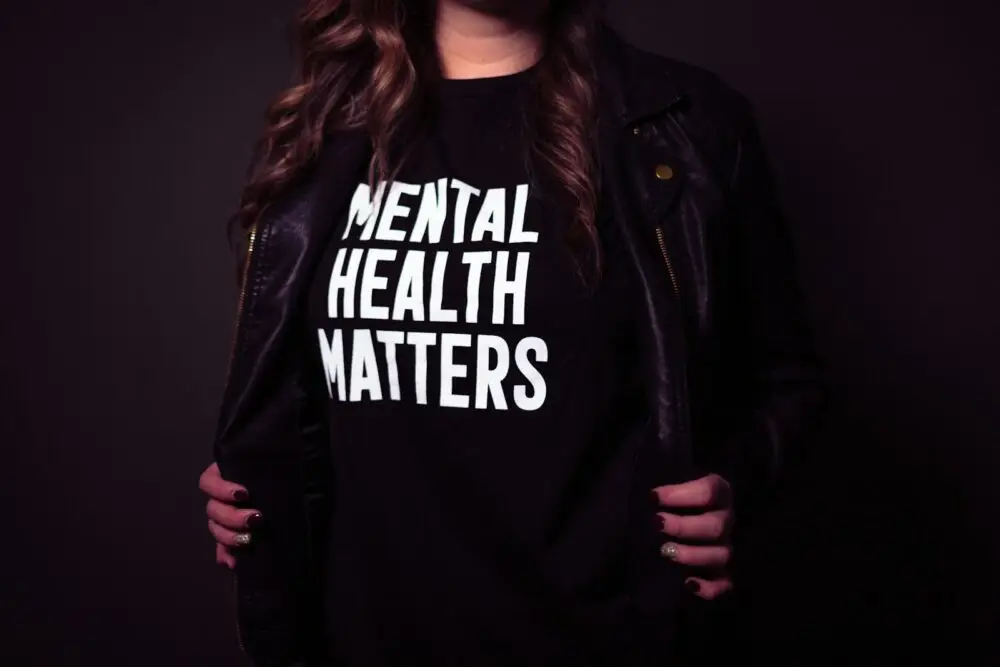18 Warning Signs of Mental Health Challenges in Teens
Parenting a teenager can be both rewarding and challenging, these Warning signs of Mental Health in Teens can help you.
As teens grow, they face many changes in their bodies, minds, and emotions.
Sometimes, these changes can lead to mental health challenges.
Recognizing the warning signs early can make a big difference in helping your teen feel better and live a happier life.
Table of Contents

Why Mental Health Matters
Mental health is just as important as physical health.
When teens face mental health challenges, it can affect how they think, feel, and act.
They might have trouble in school, with friends, or at home.
Understanding and supporting your teen can help them cope with challenges and build a strong foundation for their future.
Common Mental Health Challenges in Teens
Many teens face mental health challenges. Some of the most common include:
- Anxiety: Worrying too much about school, friends, or life in general.
- Depression: Feeling very sad, hopeless, or unmotivated for a long time.
- Stress: Feeling overwhelmed by responsibilities or expectations.
- Eating Disorders: Unhealthy habits around food and body image.
- Behavioral Issues: Acting out, being defiant, or breaking the rules often.
Each teen is different, so their challenges might look different too. That’s why it’s important to pay attention to their behaviors and emotions.
Common Warning Signs of Mental Health to Watch For
If you notice any of these warning signs, taking them seriously is essential.
Teens often don’t know how to ask for help, so they might show their struggles in these ways instead of saying how they feel.
Here are some common warning signs of mental health that might show your teen is struggling:
Changes in Mood: Feeling sad, angry, or irritable more often than usual.
Withdrawing: Spending less time with family or friends and more time alone.
Lack of Interest: Not enjoying activities they used to love.
Drop in School Performance: Struggling with grades or losing interest in learning.
Sleeping Problems: Sleeping too much, too little, or having trouble falling asleep.
Appetite Changes: Eating much more or much less than usual.
Physical Complaints: Frequent headaches, stomachaches, or other unexplained pains.
Risky Behaviors: Using drugs or alcohol, or taking dangerous risks.
Excessive Fear or Worry: Being overly scared or nervous about situations that may not seem threatening.
Unexplained Aggression: Sudden anger or hostility without clear triggers.
Obsessive Behaviors: Repeated actions or thoughts that seem unusual or excessive.
Frequent Crying: Crying spells that happen regularly without obvious reasons.
Fixation on Death or Dying: Talking or writing about death or showing an unusual interest in it.
Poor Hygiene: Neglecting personal care and cleanliness.
Overuse of Technology: Spending excessive time online or on devices, potentially as an escape.
Disconnection from Reality: Expressing strange beliefs, hallucinating, or feeling detached from the real world.
Difficulty Concentrating: Struggling to stay focused or complete tasks, even simple ones.
Sudden Outbursts: Emotional breakdowns that seem disproportionate to the situation.
How to Talk to Your Teen
Talking to your teen about their mental health can feel scary, but it’s an important step. Here are some tips using the B.U.I.L.D.E.R method:
Create a safe, non-judgmental environment.
- Lead with love – Teens might not open up right away. Let them know you’re there for them whenever they’re ready.
- Respond calmly – Choose a quiet time when you’re both relaxed. Let your teen know you’re there to listen.
- Speak honestly – Show compassion and avoid criticizing their feelings or actions. Instead of blaming or accusing, say things like, “I’ve noticed you seem sad lately. Can we talk about it?” Show compassion and avoid criticizing their feelings or actions.
- Thank them for talking.
- Empower them. – Let them know how proud you are of them and that they can handle what they may be experiencing but you’re there to support them.
Use the B.U.I.L.D.E.R Method
B – Be Approachable
Be there for them.
U – Understand
It’s normal to want to hide something they’ve done.
I – Identify Needs
Communicate, help them find their own solutions.
L – Love Unconditionally
Love them no matter what.
D – Demonstrate Acceptance & Empathy
“I’m here for you” – “it must be hard for you”
E – Expect Questions & Challenges
Heal together, roll with resistance, it takes time.
R – Reinforce the Relationship
Create a safe, non-judgemental environment.

Seeking Help
Sometimes, teens need extra support beyond what parents can provide.
Reaching out for professional help is a brave and loving step. Here are some options:
- Counselors or Therapists: These professionals can help teens understand and cope with their feelings.
- School Support: School counselors and teachers can provide guidance and resources.
- Support Groups: Connecting with others facing similar challenges can help your teen feel less alone.
- Doctors or Psychiatrists: They can help with diagnosing and treating mental health conditions.
Supporting Your Teen at Home
You play a significant role in helping your teen feel supported and loved.
Here’s what you can do:
- Show Love and Support: Let your teen know you care about them no matter what.
- Create a Safe Space: Encourage open communication without fear of punishment or judgment.
- Encourage Healthy Habits: Help your teen get enough sleep, eat healthy, and stay active.
- Be Involved: Show interest in their hobbies, friends, and school activities.
- Model Self-Care: Take care of your mental health to set a good example.
When to Act Quickly
If your teen talks about hurting themselves or others, feels hopeless or shows extreme changes in behavior, seek help right away.
Call a mental health crisis hotline or visit a doctor or emergency room.
You Are Not Alone
If your teen is struggling, remember that you are not alone.
Many families go through similar challenges.
Reaching out for help shows strength, not weakness.
By supporting your teen with love and understanding, you can help them navigate tough times and grow stronger.
Final Thoughts
Recognizing the warning signs of mental health challenges in teens can feel overwhelming.
Still, your care and attention make a huge difference.
Teens need love, patience, and understanding as they learn to manage their emotions and challenges.
By working together as a family and seeking help when needed, you can help your teen find their way to a healthier and happier life.



